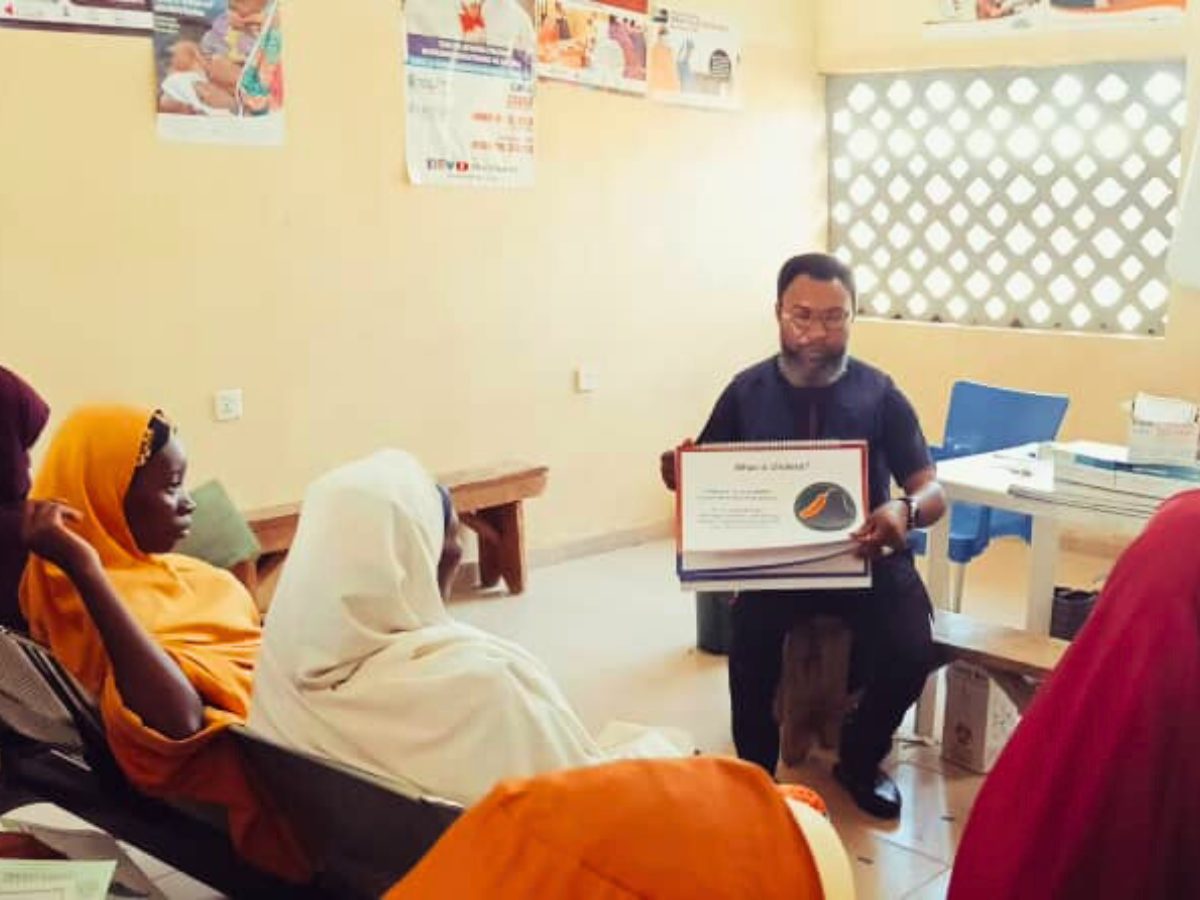In September, the first cohort of trainees graduated from ICAP’s Infection Prevention and Control Advanced Training Program, a six-month advanced, competency-based certificate course that enables health care workers in Ethiopia to deepen their knowledge, skills, and experience around infection prevention and control (IPC) compliance.
“The training program empowers trainees to be leaders in the field of IPC and offers them the opportunity to be equipped with up-to-date, evidence-based practices, knowledge, and skills for effectively implementing IPC programs in a variety of health care delivery settings,” said Berhanu Tekle, MD, MPH, senior quality improvement advisor and IPC lead at ICAP in Ethiopia. “It also strengthens the capacity of IPC professionals to play their designated roles in preventing and controlling public health outbreaks and epidemics.”
Infection prevention and control, or IPC, refers to an evidence-based and practical approach to protecting patients and health care workers from contracting avoidable health care-associated infections. Examples of infection prevention and control measures include hand hygiene, the use of personal protective equipment (PPE), and injection safety, applied at all levels of the health system.
ICAP enrolled 19 health care professionals for the advanced certification course from health facilities across Ethiopia. Participants gain both theoretical and practical IPC knowledge and skills that will prepare them to not only improve IPC standards in the hospitals where they work, but also train and mentor other health care workers.
The training program was launched in collaboration with the Ministry of Health, the U.S. Centers for Disease Control (CDC) in Ethiopia, and Saint Paul Hospital’s Millennium Medical College in Addis Ababa. It was led by a team of national experts, including representatives from the Ministry of Health, the Ethiopian Public Health Institute, and IPC experts from ICAP.
Trainees gained knowledge and skills in a number of IPC-related areas, such as environment cleaning, injection safety, management of health care waste, emergency preparedness and outbreak investigation, setting up and leading health care-associated infection surveillance at the facility level, and, most crucially, how to train and educate other health workers on IPC, including how to prepare their health care facilities for emergencies and disease outbreaks.
“The graduates of this advanced training program will be at the forefront of future and ongoing initiatives that aim at preventing and controlling infectious diseases and deadly outbreaks, which pose significant challenges to public health and human wellbeing in general,” said Zenebe Melaku, MD, ICAP’s country director in Ethiopia. “At ICAP, we are committed to continuing our vigorous support, expanding our partnership at all levels and broadening our scope to address the emerging and reemerging infectious diseases as well as public health emergencies.”
The course spanned six months and required three, two-week rounds of theoretical and clinical practice sessions, and three, six-week rounds of on-the-job practice at their respective facilities. During the latter, the trainees had a dedicated mentor who they could access for guidance.
“The training has enriched my understanding of various pathogen types, modes of transmission, and effective infection prevention methods,” said Tagel Tesfaye, MPH, the IPC focal person at Adare Hospital in Ethiopia’s Sidama Region and one of the program’s graduates. “It has equipped me with a comprehensive understanding of infection control protocols, enabling me to deliver safe and high-quality IPC support.”
About ICAP
A major global health organization that has been improving public health in countries around the world for two decades, ICAP works to transform the health of populations through innovation, science, and global collaboration. Based at Columbia Mailman School of Public Health, ICAP has projects in more than 40 countries, working side-by-side with ministries of health and local governmental, non-governmental, academic, and community partners to confront some of the world’s greatest health challenges. Through evidence-informed programs, meaningful research, tailored technical assistance, effective training and education programs, and rigorous surveillance to measure and evaluate the impact of public health interventions, ICAP aims to realize a global vision of healthy people, empowered communities, and thriving societies. Online at icap.columbia.edu







